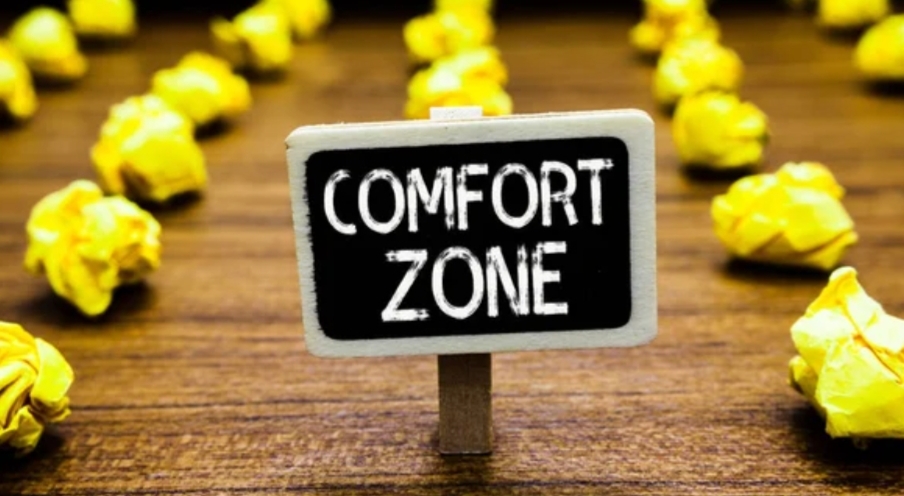
We’ve all heard the phrase: “Life begins at the end of your comfort zone.” It’s plastered on motivational posters, quoted by success coaches, and yet, for many of us, the idea of stepping outside that cozy, familiar bubble feels less like an adventure and more like a terrifying leap into the abyss. The struggle to get out of the comfort zone is one of the most fundamental and persistent challenges of personal growth, but understanding why it’s so difficult is the first step toward overcoming it.
The Allure of the Familiar
To understand the struggle, we must first appreciate the nature of the comfort zone itself. Psychologically, it is a behavioral state within which a person operates in an anxiety-neutral condition. It is where our stress and anxiety are minimal, where we know what’s coming, and where we feel safe and secure. Our brain is wired for survival, and anything unfamiliar is flagged as a potential threat, even if it’s just a new hobby, a different route to work, or a challenging work project.
The immediate relief and predictability of the comfort zone creates a self-reinforcing loop. When we retreat to what is familiar, our brain releases chemicals that make us feel good, rewarding the avoidance behavior. Over time, this makes the instinct to stay put incredibly powerful, resulting in what can feel like a lifelong hindrance to reaching our full potential.
The Psychological Roadblocks
The path to growth is paved with discomfort, and our psychological barriers are the gatekeepers that keep us trapped.
- Fear of Failure: This is perhaps the most significant roadblock. In our comfort zone, we rarely risk failing. Stepping out, however, means exposing ourselves to the possibility of making mistakes, looking foolish, or simply not succeeding. For many, the fear of this judgment—both from others and ourselves—is paralyzing.
- The Competence Challenge: We worry that we won’t be good enough to handle the new situation. This self-doubt, a quiet but powerful inner critic, tells us, “You’re not equipped for this,” making the unfamiliar task seem insurmountable.
- The Illusion of Safety: The comfort zone masquerades as a solution, but it often leads to what is known as “stuckness.” While we feel safe in the short term, this avoidance can breed long-term feelings of regret, frustration, and unrealized potential. As the saying goes, “A ship in harbor is safe, but that is not what ships are built for.”
The Journey to the Growth Zone
Despite the struggle, breaking free is essential for a dynamic, fulfilling life. The rewards of challenging ourselves are profound:
- Expanded Horizons: New challenges bring new experiences, skills, people, and perspectives, expanding our awareness of the world.
- Increased Self-Confidence and Resilience: Every small victory outside our comfort zone builds self-efficacy—the belief in our ability to succeed. We learn to manage stress, problem-solve effectively, and bounce back from setbacks, fostering a resilient, growth mindset.
- Achieving Goals: Most meaningful goals—a career change, mastering a skill, finding a new community—lie outside the perimeter of our current comfort. Discomfort is the necessary prerequisite for achieving them.
Strategy for a Smarter, Smaller Leap
The key to a successful escape is not a giant, terrifying leap, but a series of small, deliberate steps into what is often called the “Learning Zone” (the space between comfort and panic).
- Start Small: Instead of focusing on the colossal end goal, commit to tiny, low-risk challenges. Try a new recipe, speak up once in a meeting, or introduce yourself to a new colleague. These small wins activate your brain’s reward system, building momentum.
- Set Process-Based Goals: Focus on the effort, not just the result. Instead of “I must be an expert,” aim for “I will practice this new skill for 30 minutes every day.” This is easier to control and repeat, turning effort into a reliable habit.
- Harness Conviction: Identify the deep purpose behind your desired action. Why is this important to you? A strong sense of purpose—conviction—acts as an antidote to avoidance, giving you the motivation to persevere through the discomfort.
- Embrace ” Positive stress”: Not all stress is bad. The initial anxiety (often called positive stress) that comes with a new challenge is the energy required for optimal performance. Reframe anxiety not as a warning to retreat, but as excitement for growth.
The struggle to get out of the comfort zone is the struggle of our instincts versus our aspirations. It will never be perfectly easy, as our nature is to seek safety. But by understanding the psychological forces at play and employing a strategy of small, intentional moves, we can continuously expand our boundaries, making what was once scary and new eventually feel like a familiar, exciting new base for our ever-evolving self.


